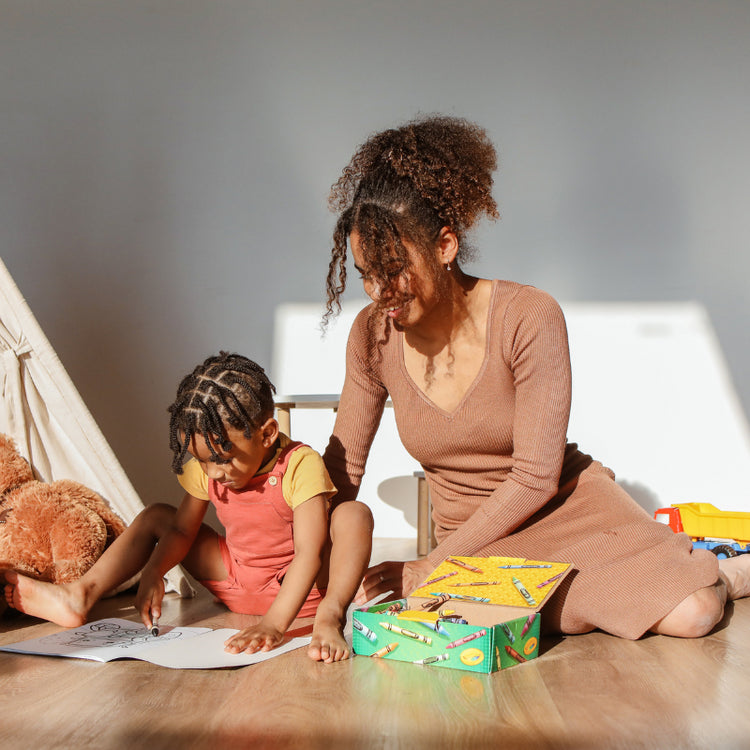Introduction
In the ever-evolving realm of early childhood education, where approaches and methodologies abound, the Montessori method stands out as a beacon of child-centric learning. At the heart of this pedagogical philosophy lies a tool that transcends conventional play: Montessori toys. These meticulously designed playthings aren't just instruments for amusement; they are educational catalysts, igniting a transformative journey in a child's cognitive, social, and emotional development.
Montessori Education: A Brief Overview
Developed by the visionary Dr. Maria Montessori in the early 20th century, the Montessori method revolutionized conventional teaching paradigms. Driven by the belief that children learn best when they actively participate in the learning process and have the freedom to explore their interests independently, this approach has gained global recognition.
Central to the Montessori philosophy is the idea that education is not a one-size-fits-all model. Instead, it's a dynamic process that unfolds uniquely for each child. The pedagogy places a premium on cultivating a child's natural curiosity, promoting independence, and fostering a love for learning.
Montessori Toys: Beyond the Surface
Montessori toys are not merely aesthetic playthings; they are carefully curated educational instruments that seamlessly integrate with the principles of the Montessori approach. Let's delve into the multifaceted significance of Montessori toys in shaping the developmental landscape of young minds.
1. Promoting Independence and Decision-Making:
One of the core tenets of the Montessori philosophy is the cultivation of independence. Montessori toys, designed to be self-correcting, encourage children to engage in activities autonomously. From puzzles to practical life activities, these toys empower children to make choices, fostering a sense of responsibility and self-confidence.
2. Sensorial Exploration:
Montessori toys prioritize the sensory experiences that captivate a child's imagination. The use of various textures, shapes, and materials stimulates different senses, contributing to the refinement of fine and gross motor skills. Whether it's the touch of smooth wooden blocks or the sight of vibrant colors, these toys lay the groundwork for sensory awareness and exploration.
3. Holistic Learning Through Multi-Functional Play:
Unlike traditional toys that often serve a singular purpose, Montessori toys are versatile and multifunctional. A set of nesting blocks, for example, not only refines hand-eye coordination but also introduces concepts of size, shape, and spatial relationships. This holistic approach to play ensures that children engage in activities that seamlessly integrate multiple skills, promoting a well-rounded development.
4. Real-world Connection and Practical Life Skills:
Montessori toys often mirror real-world objects, creating a bridge between play and practical life. The introduction of miniature tools, kitchen sets, or gardening kits serves a dual purpose: it sparks imaginative play while instilling an understanding of the purpose and function of everyday items. This connection lays the foundation for abstract thinking and problem-solving.
5. Emphasis on Quality and Natural Materials:
In a world dominated by plastic, Montessori toys stand out for their emphasis on natural materials such as wood, metal, and fabric. This deliberate choice is more than an aesthetic preference; it aligns with the Montessori philosophy of connecting children with the natural world. The use of quality, durable materials not only ensures the longevity of the toys but also enriches the sensory experience for the child.
Conclusion: Investing in Potential
In the tapestry of early childhood development, Montessori toys emerge as indispensable threads, weaving together elements of play, discovery, and education. As parents, educators, and caregivers, embracing the profound significance of Montessori toys is not merely about selecting playthings; it is an investment in the cognitive, emotional, and social potential of the young minds they accompany on their journey of discovery.
The magic of Montessori toys lies not just in their design but in the transformative impact they have on a child's developmental trajectory. By intertwining play with purpose, these toys become conduits for self-discovery, creativity, and a lifelong love for learning. As we navigate the intricate landscape of early childhood education, let us recognize and celebrate the invaluable role that Montessori toys play in shaping the minds of tomorrow.






